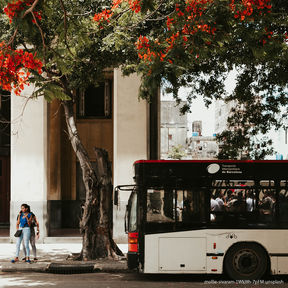
When
Where
Event language(s)
Sustainable welfare: States and capabilities of transformation
Welfare societies have evolved to pursue progress, distribute wellbeing, and build up institutional capacities to regulate and steer social development. Sustainability concerns present a double bind for such societies. While the key conditions of the development of welfare societies erode, including rampant acquisition of natural resources and rapid economic growth, crisis escalate and transformational sustainability challenges amount. In between such pressures, sustainability pursuits call for a broad constituency, new visions of welfare and wellbeing and creative articulation of transformational pathways to sustainability.
In the YHYS 2021 colloquium, we highlight particularly the following aspects of sustainability transformations:
- Institutional lock-ins and the capacities of the welfare state
- Novel ideas about the actors, key processes, and structures in a welfare state context
- How environmental and social crises punctuate and build momentum for transformations
- Legitimacy, inclusiveness, and acceptance of sustainability transformations
- How global perspectives infuse in and inform societal change from personal and local to national processes
Conference fee:
- No fee for members of YHYS (membership fee is 25€ and 12€ for undergraduate and Master’s students) or for online participation
- 50€ for non-members
- 30€ for students, including PhD students
- To be paid by 18.11.2020 to YHYS with a reference 'YHYS colloquium 2021' (Danske Bank FI9580001770440726)
Programme:
Programm overview see PDF below
Book of abstracts password is sent with confirmation of registration
COVID instructions
Important COVID-related precautions include the following measures :
1) If you have any symptoms or if you are not vaccinated please opt for online participation.
2) All participants should register. This is particularly important for on-site participation.
3) Onsite participants are required to wear a mask in all occasions apart from giving talks
4) The Colloquium dinner will be accessible only for people with a COVID passport (https://stm.fi/en/the-covid-19-passport).
This informal gathering is for PhD students and early career researchers to meet and to share a short presenation of their project (preferably without slides). Please indicate your interest in participation and feel free to send comments or suggestions for the convener Aino Rekola (@ymparisto.fi).
Time and location: Aalto University Väre-building, Otaniementie 14, room F-101.
Problematizing carbon and biodiversity offsetting
Kamilla Karhunmaa, University of Helsinki (kamilla.karhunmaa@helsinki.fi)
Otto Bruun, University of Eastern Finland
Mira Käkönen, University of Helsinki/University of Tampere
Nina V. Nygrén, University of Tampere
Description:
Different forms of offsetting one’s environmental impact have become pronounced in recent years and entered our lives through a variety of products and services. Offsetting refers to carrying out environmentally beneficial activity in one place in order to compensate for known environmental damage elsewhere. While offsetting originally developed in the 1970s in the United States in order to protect wetland ecosystems (Robertson, 2006), since then carbon offsetting has become the more visible form of compensation to states, companies and consumers. Biodiversity offsetting, in turn, has been variedly implemented in different national contexts and is currently under development in Finnish nature conservation regulation.
Both carbon and biodiversity offsetting appear under pressure to expand in size and scope as an increasing amount of companies are making declarations of “carbon neutrality” or aiming for “no net loss of biodiversity“, relying on offsets to attain these promises. As offsetting depends on “making things the same” through commensuration (Mackenzie, 2009), we think it is relevant to examine the logics that are built into offsetting, how they unfold in practice, and with what effects.
In this working group, we invite presentations that deal with any aspects related to either carbon or biodiversity offsetting. This can include analysis on offsetting projects and their effects, consumers’ attitudes towards offsetting, as well as the diverse means of governing offsetting, including policy, regulatory and legal measures currently in the making. We are interested in both practical and theoretical contributions as well as presentations examining offsetting in the global North and the global South.
Schedule
Thursday 25.11 13.00-16.00
Social impacts of biodiversity offsetting: a review - Anna-Kaisa Tupala
Consensus and contestation of ecological compensation - Thomas Karlsson
Making sense of biodiversity offsetting by playing a serious game - Nina V. Nygrén
Friday 26.11 09.00-12.00
Regulating carbon offsets in a domestic context– current developments and possible ways forward - Emilie Yliheljo
Citizens’ views on the voluntary carbon offsets – a Finnish survey - Vilja Varho, Annukka Vainio, Saara Salmivaara, Kamilla Karhunmaa & Tapio Eerikäinen
Infrastructuring carbon neutrality: Continuities and disjunctions in post-Paris offsetting - Mira Käkönen, Kamilla Karhunmaa
Citizens and citizenship in pursuing alternative economic approaches and sustainable welfare
Angelina Korsunova, University of Helsinki (angelina.korsunova@helsinki.fi)
Eeva-Lotta Apajalahti, University of Helsinki
Annukka Vainio, University of Helsinki
Salvatore Ruggiero, University of Helsinki
Description:
In this session we invite scholars interested in discussing the emerging and evolving concept of citizenship: the meanings, roles and activities attributed to citizens as actors of the new economic models aimed at sustainability and well-being.
The emerging conception of citizenship across different domains of consumption places active individuals in the forefront of actualising alternative economic models and pursuing sustainable welfare. Even in the capitalist framings, where the role of individuals has been traditionally connected to consumption, studies found diverse contributions of individuals to the economy. For example, the term “prosumer” has been used to acknowledge contributions of individuals to innovation processes of companies, co-production of services (Ritzer & Jurgenson, 2010) or energy user-producers (Szulecki, 2018).
Whereas earlier citizenship has been related to being a community member, voter and activist, in alternative economic models and in the context of sustainability transformation domains of food, energy and cities, citizenship has different meanings. For example, Aldred (2010) discusses cycling citizenship as a means to combine utility and pleasure sustainably, while contributing to the local economy. According to Hatanaka (2020), food citizenship implies a deep understanding of needs and challenges of the food system. While energy citizenship raises the question of convenience versus active participation in alternative energy systems (Ryghaug et al., 2018), circular citizenship suggests focusing on thriftiness and repair instead of consumption (Korsunova et al., 2021).
The aim of this session is to bring together scholars working in the fields of degrowth, bio-, circular, green, doughnut and postgrowth economies or working on the sustainability transitions and sustainable cities to discuss the following:
- How has the concept of citizenship re-emerged against the goals of new economic models and sustainability transitions?
- What are the implications of conceptualising individuals as citizen actors in the economy?
- Citizenship implies rights but also duties: what new duties will be expected from sustainable citizens?
- How to support and establish active citizenship as a norm?
Schedule:
Friday 09.00-12.00
Can individuals contribute to more sustainable practices of consumption? - Eva Heiskanen, University of Helsinki
The transition to circular lifestyles: niche innovators in Finland and Russia - Alexandra Nenko et al., ITMO University & University of Helsinki
Product care stories – unfolding citizens’ agency in circular economy - Taru Peltola & Kati Pitkänen, University of Eastern Finland & SYKE
The circular, bioeconomy and the green economy: the role of de/postgrowth, responsible consumption and citizens-consumers - Dalia D’Amato, University of Helsinki
BREAK
Reconfiguring citizenship in circular economy (waste citizenship, food waste and ‘waste guerrillas’) - Teemu Loikkanen & Veera Kinnunen, University of Lapland
Food citizenship and the role of materiality in community-supported agriculture - Anni Turunen, Riikka Aro & Suvi Huttunen, University of Jyväskylä
The spatial implications of food citizenship in the realm of urban consumption - Kata Fodor, Aalto University
Crises as momentum for change: The role of different types of knowledge
Anna Salomaa, Tampere University (anna.a.salomaa@tuni.fi)
Johan Munck af Rosenschöld, University of Helsinki
Description:
The most challenging crises in today’s society are environmentally induced, socio-ecological crises, which span multiple societal sectors. These crises demand action despite sometimes an apparent lack of urgency among central stakeholders. Socio-ecological hazards such as floods, droughts, and fires demand urgent decisions, while climate change aggravates these risks further. Biodiversity loss is increasingly gaining more political traction. These environmental and social crises build momentum for societal change, potentially increasing levels of resilience and adaptation or generating transformation. However, change processes are riddled with contested values and insufficient knowledge regarding what actions to take. Taking this into account, we are especially interested in the role of knowledge in policy decisions and in the potential societal transformation itself. For example, what is the role of expert knowledge in decision-making? Are there differences between different actors in how they justify their decisions?
This session aspires to discuss scientific evidence-informed policy, co-production of different knowledge types in situations of crisis, governance to increase long-term resilience, momentum created by environmentally induced crises, and the role of knowledge in transformative change. Other related presentations are also welcome. We look forward to theoretical, methodological, and empirical presentations.
Schedule:
Thursday 13.00-16.00
Enacting science-policy interfaces in times of crisis: A case of a policy situation room - Anna Salomaa & Johan Munck af Rosenschöld
Knowing ecological crises with strong sustainability and weak ontology - Eeva Houtbeckers & Galina Kallio
The role of phronetic social sciences in overcoming socio-ecological crises - Silviya Serafimova
Towards a critical reading of ”the international” in human-nature relations - Monica Tennberg
Skills, Practices, and Knowledge Production in Self-Provisioning of Food - Toni Ruuska, Pasi Heikkurinen & Jarkko Pyysiäinen
The environmental impact bond as a potentially transformative policy instrument: frames and frictions in the preparation process of the Nutrient-EIB - Olli Tiikkainen, Matti Pihlajamaa & Maria Åkerman
Sustainability Transitions in Plastics Ecosystems: The Role of Law and Ethics
Prof. Rosa Maria Ballardini/University of Lapland (rosa.ballardini@ulapland.fi)
Prof. Rosalind Malcolm/University of Surry
Description:
We have all heard of the problem of plastic pollution, littering our land and oceans, and contributing to health problems in both humans and animals. At the same time, however, plastics are central to our modern life and have many useful properties that advance sustainability. Indeed, it is not plastic as such that is the problem (Clift et al 2019). In many ways, plastics are superior materials in terms of performance: they are lightweight, durable, cheap to manufacture, and easy to process (Lagaron et al. 2004; Shrivastava 2018; Satti and Shah 2020). Moreover, some plastics are well suited for storing food, therefore preventing food spoilage (Lagaron et al. 2004) and have been essential as PPE during the pandemic. Instead, it is how we use and ultimately dispose of or give new life to plastics that have a possibly negative environmental impact. Promoting a transition towards a more sustainable plastics ecosystem calls for a multi-stakeholder coordinated change supported by inter alia suitable legislation and driven by ethical values, like strong sustainability and care and respect for the natural environment (Malcolm 2019). There is a high degree of public consciousness around the problem of plastics waste triggered in part by media attention and campaigns and this has resulted in much attention worldwide to this ‘wicked’ problem. There are many examples of legislative action and intention internationally, nationally, regionally and locally which attempt to manage the problem. But dealing with the positive aspects of plastics while managing the negative problems when plastics are discarded is challenging. This session will discuss the necessity of designing effective governance frameworks to manage plastics and the key legislative and ethical considerations that are needed to trigger a sustainable solution.
Schedule:
Thursday 13.00-16.00
Knowledge creation for transition - Methodological challenges from ethical perspective - Anna Leinonen, Corinna Casi, Henri Wiman
Influencing Plastics Legislation and Policy: Law and Communications Perspective - Noreen O’Meara and Rosalind Malcolm
Innovative Circular Economy Systems for Plastics: What is the Role of Competition Law? - Juha Vesala
Single-use plastics consumption and prevention: mapping public policies in Brazil - Isabela Ribeiro Borges de Carvalho, Isabella de Carvalho Vallin, Julia Valle Silva, Sylmara Francelino Lopes Gonçalves-Dias
Friday 9.00-12.00
Ownership and responsibility in reducing plastics use in youth communities: a legal perspective - Noreen O’Meara, Tiago de Melo Cartaxa, Rosalind Malcolm
Building collective ownership of single-use plastics waste in youth communities in Jamaica - C. Andrea Bruce Clayton
Investigating the Knowledge and Attitudes Towards Plastic Pollution Among the Youth in Nairobi, Kenya - Nicholas Oguge, Francis Oremo and Salome Ondigo
Plastic promises: how UK food retailers and manufacturers are repurposing their sustainability narratives - Matthew Peacock, Noreen O'Meara, Itziar Castello Molina, Rosalind Malcolm
Legal and policy strategies for phasing out single use plastics in Malawi: A regime assessmen - Thoko Kaime, Isabelle Zundel, Tisungeni Kaim
Promoting Sustainable Innovations through Regulation and Policy
Prof. Taina Pihlajarinne/University of Helsinki (taina.pihlajarinne@helsinki.fi)
Prof. Rosa Maria Ballardini/University of Lapland
Prof. Jukka Mähönen/University of Helsinki
Description:
Technological development and innovation impact on societies’ ability to respond to the environmental crisis, in terms of both mitigation and adaptation. It is no coincidence that the Green Deal announced by the European Commission to transform the EU economy and society to a more environmentally sustainable model places deployment and development of sustainable technologies in a central role. It is true that certain technologies would help foster sustainability. For instance, many digital technologies like 3D printing, artificial intelligence or geoengineering carry potential for fostering resource efficiency. But they are also open to challenge via ethical arguments (e.g. from human-environmental or human-technical perspectives). How can regulation and policy solutions help produce sustainable innovations that bring minimal adverse side-effects or disruptions? A ‘just’ transition towards a sustainable future involves a complex multi-level framework. This means that we need to ensure that law, regulations and policy foster rather than hinder innovations.
This session aims at delving into these issues broadly – especially papers dealing with all aspects of sustainable innovations, regulation and policy are therefore welcome.
Schedule:
Friday 09.00-12.00
Development together – The Finnish way of promoting sustainable public procurement - Annukka Berg, Katriina Alhola, Juha Peltomaa, Satu Tietari
Sustainable Considerations in Open Innovation IP Strategies - Jouko Nuottila
Innovation and Entrepreneurship towards Sustainable Food Systems in South Ostrobthnia and Finland - Silvia Gaiani
Proactive law, regulation and governance fostering sustainability innovations - Kaisa Sorsa
Intellectual Property and Social welfare: A contextual Analysis - Pratyush Upreti
Resistance to Sustainability Transformation: Thinking about the challenge with Finland and Cyprus - Ourania Papasozomenou, Arden, Juha Hiedanpää
Digital tools for change -– Footprint calculations and life-cycles
Sanna Tiilikainen, Aalto University (sanna.tiilikainen@aalto.fi)
Michael Lettenmeier, Aalto University
Description:
Modern societies are built around the production and consumption of goods and services that help maintaining welfare states but also cause an unsustainable level of carbon emissions and other environmental impacts, such as biodiversity loss (Akenji et al. 2019). Carbon and other environmental footprints have been developed as means for providing relevant and life-cycle-based information that enables actors to reduce their environmental impacts. However, representing these emissions as a “footprint” can be a challenge, as the emissions and impacts comprise a complex web of co-dependencies in the production and consumption over product lifecycles. Reducing footprints can be challenging, too, as our modes of production and consumption are maintained by our practices, habits, norms, expectations, and the very ideas about a “good life” and “welfare” (Lorenzoni et al. 2007; Salo et al. 2019; Tukker et al. 2010). All these are both resistant to change but also fluid, changing and evolving over time (Shove et al. 2012). Some changes can happen quickly, as in the case of fashions and fads, while some unfold over a longer timeframe, such as the welfare state (Shove et al. 2012). Over the history, changes have been set in motion by new information that has given rise to novel knowledge, understanding, and emotional responses (Shove et al. 2012). At present, we are producing more information about footprints than ever before.
How could this information be used for digital tools that act as a catalyst and facilitator for the change to the sustainable production and consumption? For this session, we call for papers addressing the producing, measuring, reducing, and conceptualizing of carbon and other footprints, life-cycles, digital tools for change, and the related phenomena.
We welcome all kinds of contributions (empirical, theoretical, and philosophical), including but not limited to the following:
-What is the role of digital tools in carbon and other kinds of footprinting, lifecycles, carbon rationing, evaluation, fostering participation, facilitating and steering sustainability transitions, if any?
-How to design digital tools for change?
-What kind of data to use? Where to get data and how to provide the data?
-Role of trends (such as quantified self, SocialMedia, peer support, and AI) in enhancing the design and use of digital tools. How does the future of the digital tools look like?
-How to theorize and conceptualize the relevant phenomena (footprints, life-cycles, and digital tools for sustainability) for facilitating data driven change and organizing societies around staying within a sustainable, or at least acceptable, level of carbon emissions or other
environmental impacts?
Schedule
Friday 09.00-12.00
Public acceptability of income redistribution through personal carbon trading in mobility - Atte Pitkänen, Tuuli von Wrighta, Janne Kasevab, Helena Kahiluoto
How to Design Effective Carbon Footprint Calculators for Consumers - Sanna Tiilikainen, Mikko Jalas, Michael Lettenmeier
The Role of Global Social Justice Considerations in Facilitating Individuals’ Transitions Towards a 1.5-degree Lifestyle - Sanna Tiilikainen, Mikko Jalas, Michael Lettenmeier
“What can be measured, can be managed”? Use of life cycle based information for sustainability management. - Hanna Pihkola
This session takes place 11.00-12.00 after the session 6.1. closes. Moderator Lauri Lahikainen and collaborators of ORSI-STN project will share information about this research project. Further information can be found at https://www.ecowelfare.fi/en/
Infrastructure states
Mikko Jalas, Aalto University (mikko.jalas@aalto.fi)
Sanna Lehtinen, Aalto University
Milos Mladenovic, Aalto University
Shane Epting, Missouri University of Science and Technology
Description
Social phenomena are cemented in the ways that societies build and maintain their infrastructures. Commitments to wide availability and secured delivery of services such electricity, communications and transport are constituent aspects of nation states, civic societies and communities. When taking sustainability concerns, limited resource availability, and fairness seriously, the expansion of these services and the commitments that underlay much of daily activities need to be questioned. What is sufficient service level in space and time? What is good quality service? How to ensure fairness in access to infrastructure services? How to limit excess consumption and provide for well-being?
Infrastructural expansion has been marked with grand openings, but much of their development is gradual. They are made not only of materials, but contain epistemic practices and politics. The notion of ecowelfare state, when viewed from the point of view of infrastructures, questions not only availability and access to services, but the way that infrastructures are governed.
Hence, we call for papers relating to infrastructures as materialisations of sustainability transformations and new vistas for to role of state in such transformations. Question include but are not limited to the following.
How to share and make better use of infrastructures and how much scope is there to alter the spatial and temporal reach of services?
How do collectives and identities form around of infrastructures, including community energy projects, water co-ops and cooperation in the area of transport?
How do infrastructures constitute collective life?
How do different ownership and operation co-exist, blend or compete between public, private and collective service provisioning?
How to properly account for differences in the need for and abilities to participate in infrastructure service provision?
What political ideas, discourses and epistemic practices infuse with and condition developments in infrastructures?
Schedule:
Thursday 13.00-16.00
Building community resilience in welfare state: learning from local water crisis in Finland - Tuuli Hirvilammi, Liisa Häikiö, Lauri Lahikainen, Sanna Rikala & Antti Wallin
Prime-time Access for whom? Reshaping the Rhythms of Consumption Through dynamic Pricing of Infrastructure Services - Mikko Jalas and Sini Numminen
Infrastructures of (in)continence in and as the shadows of welfare state - Eveliina Asikainen, Tiina Vaittinen, Anna Rajala, Tuulia Lahtinen, Minna Törnävä
Green infrastructure, socio-ecological compensation, and the future of environmental well-being in Turku - Juha Hiedanpää, Aleksis Klap, Idamaria Laine, Miika Meretoja, Minna Pappila, Misa Tuomala and Timo Vuorisalo
The Race of 5G: Urban aesthetic compromises. - Sanna Lehtinen, Delfina Fantini van Ditmar
Good, bad, and interdisciplinary science
Teea Kortetmäki, University of Jyväskylä (teea.kortetmaki@jyu.fi)
Where are we, what does it mean, and where should we be going?
Interdisciplinary research has become a mantra in the context of sustainability transitions that is repeated from funding calls to research strategies and public discussions. Environmental social scientists have often actively joined the group making strong calls for multi-, inter- and/or transdisciplinary research collaboration in order to resolve the environmental problems of our time. Environmental social sciences are also often among the key players to establish societally relevant research for sustainability transitions.
How does this influence our scientific community and ways of doing research in environmental social sciences?
Is interdisciplinary science always welcomed progress or may it also deteriorate the quality of research or risk the research training?
What is the purpose of interdisciplinary collaboration?
Are researchers sufficiently equipped for multi-, inter- and/or transdisciplinary research with a high scientific quality?
Is there a risk that the interdisciplinary emphasis undermines some internal values of scientific practice?
How to conduct, evaluate, and promote good interdisciplinary science – if there is such?
The roundtable discussion begins with 1-4 short introductory talks (max 5 minutes each) to the topic, followed by free discussion among the roundtable participants (for ca. one hour). If you are interested in giving one of the short introductory talks, please contact the roundtable host Teea Kortetmäki (teea.kortetmaki@jyu.fi). Pre-registration for participation is not required.
Speakers
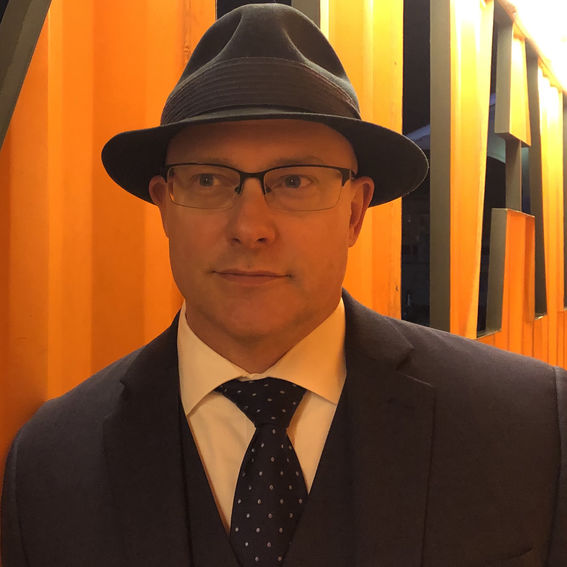
Dr. Shane Epting is an Assistant Professor of Philosophy at the Missouri University of Science and Technology (USA). He researches transportation, infrastructure, and urban futures. Dr. Epting is a founding member and Codirector of the Philosophy of the City Research Group. He is also the Chair of the Advisory Board of the Interdisciplinary Environmental Association. His upcoming book, The Morality of Urban Mobility: Technology and Philosophy of the City, will be released on July 15 (Rowman and Littlefield International).
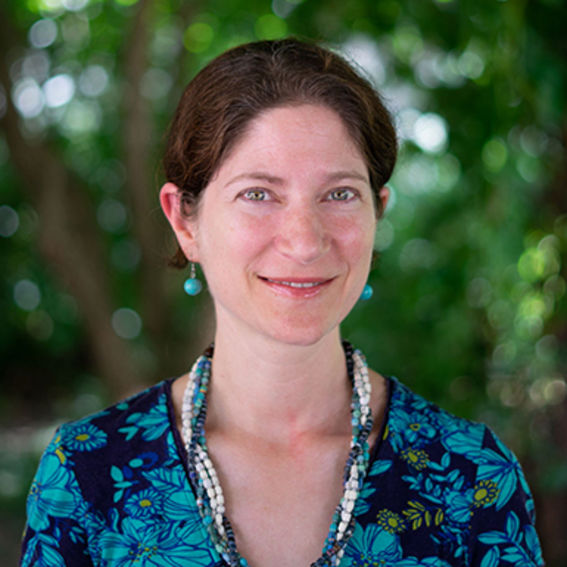
Julia Steinberger is a Professor of Ecological Economics at the University of Lausanne, Switzerland. Her research examines the connections between resource use (energy and materials, greenhouse gas emissions) and societal performance (economic activity and human wellbeing). She is interested in quantifying the current and historical linkages between resource use and socioeconomic parameters and identifying alternative development pathways to guide the necessary transition to a low carbon society. She is leading a research project 'Living Well Within Limits', investigating how universal human well-being might be achieved within planetary boundaries. She is Lead Author for the IPCC's 6th Assessment Report with Working Group 3.
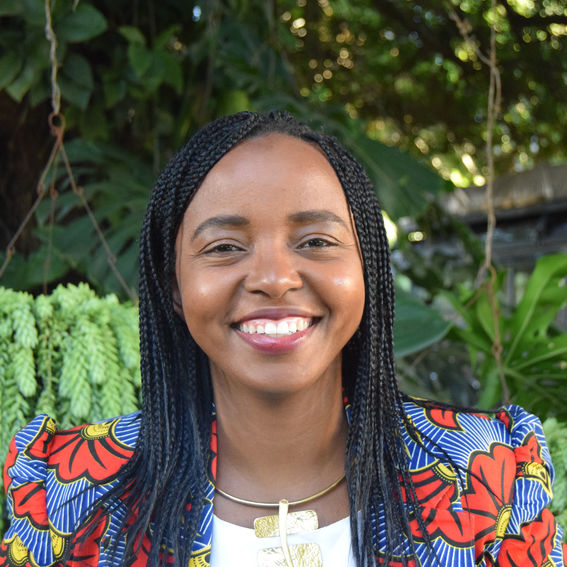
Dr. Susan Chomba is the Director of Vital Landscapes for Africa at the World Resources Institute (WRI). She leads the institution’s work on Forests, Food systems and People which includes forest landscape restoration, sustainable agriculture/food systems and thriving rural livelihoods in Africa. Susan is a scientist with over 15 years of research and development experience in Africa. She previously led the Regreening Africa Programme at CIFOR-ICRAF, whose primary objective was to restore degraded lands by scaling up proven and cost-effective technologies and practices across eight countries in Africa. She is a member of the African Academy of Sciences (AAS) and an associate editor for political ecology for the international journal, Frontiers in Human Dynamics. She holds a PhD in forest governance from the university of Copenhagen, Denmark, a double MSc. in agricultural development and agroforestry from the university of Copenhagen and Bangor university respectively; and a BSc. in forestry from Moi university in Kenya.
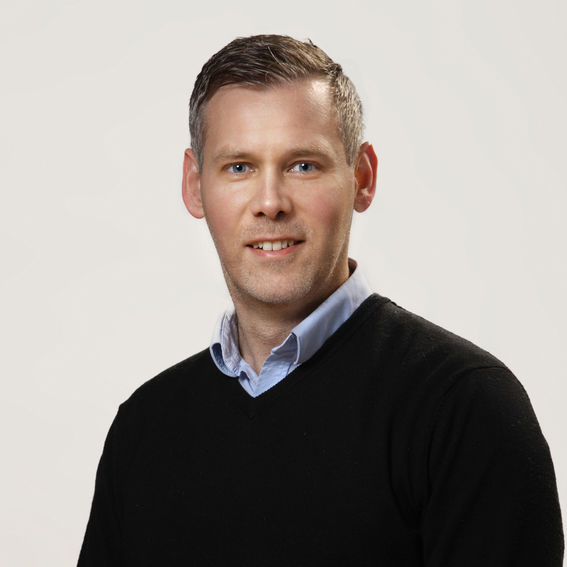
Lauri Rapeli works as the Director of Research in the Social Science Research Institute (Samforsk) at Åbo Akademi University since 2016. Political scientist by training, Rapeli has also worked at the University of Turku and the University of Helsinki. He is currently one of three principal investigators in the Finnish National Election Study and the responsible researcher in several large-scale research projects. He is the vice director of Future of Democracy: A centre of excellence in public opinion research, financed by the Åbo Akademi University Foundation. In addition to elections, Rapeli’s work focuses on the political behavior of democratic citizens and elites, and more broadly, on how representative democracy functions. In more recent work, Rapeli with colleagues have examined why Finnish democracy performs so well as a particularly future-oriented system. His work has previously been published in journals such as the European Journal of Political Research, Party Politics and Electoral Studies.
The Finnish Society for Environmental Social Science (YHYS) brings together practitioners and users of environmental social science in Finland.
The annual fall colloquium is a cornerstone of YHYS activities as it brings together researchers from various disciplines to discuss environmental social science questions. The fall colloquium takes academic debate forward by inviting internationally merited researchers to talk from different perspectives on the changing themes.
Mikko Jalas (mikko.jalas@aalto.fi)
Aino Rekola (aino.rekola@syke.fi)
Senja Laakso (senja.laakso@helsinki.fi)
Juha Hiedanpää (juha.hiedanpää@luke.fi)
Philip Hector (philip.hector@aalto.fi)






